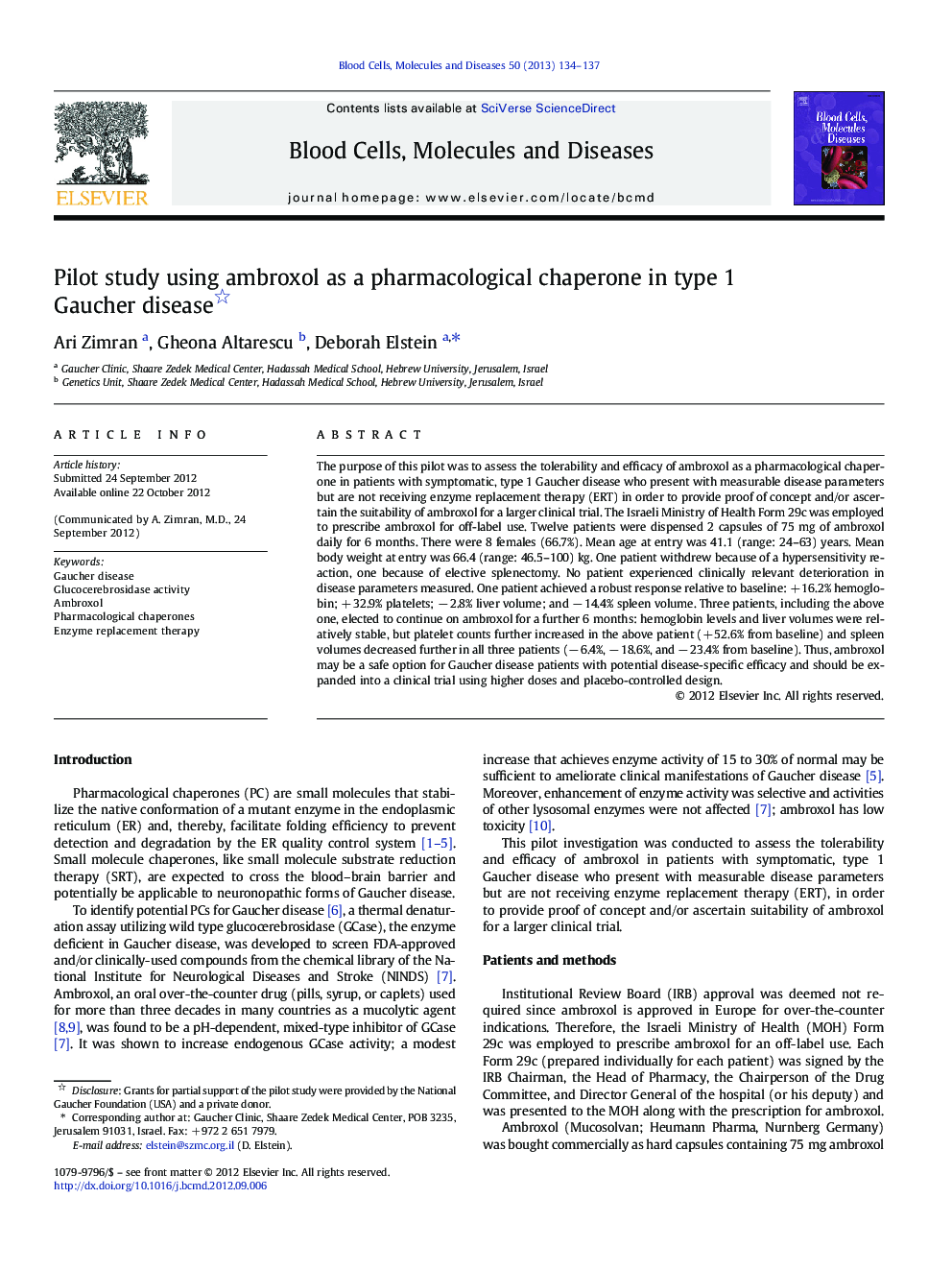| Article ID | Journal | Published Year | Pages | File Type |
|---|---|---|---|---|
| 2827415 | Blood Cells, Molecules, and Diseases | 2013 | 4 Pages |
The purpose of this pilot was to assess the tolerability and efficacy of ambroxol as a pharmacological chaperone in patients with symptomatic, type 1 Gaucher disease who present with measurable disease parameters but are not receiving enzyme replacement therapy (ERT) in order to provide proof of concept and/or ascertain the suitability of ambroxol for a larger clinical trial. The Israeli Ministry of Health Form 29c was employed to prescribe ambroxol for off-label use. Twelve patients were dispensed 2 capsules of 75 mg of ambroxol daily for 6 months. There were 8 females (66.7%). Mean age at entry was 41.1 (range: 24–63) years. Mean body weight at entry was 66.4 (range: 46.5–100) kg. One patient withdrew because of a hypersensitivity reaction, one because of elective splenectomy. No patient experienced clinically relevant deterioration in disease parameters measured. One patient achieved a robust response relative to baseline: + 16.2% hemoglobin; + 32.9% platelets; − 2.8% liver volume; and − 14.4% spleen volume. Three patients, including the above one, elected to continue on ambroxol for a further 6 months: hemoglobin levels and liver volumes were relatively stable, but platelet counts further increased in the above patient (+ 52.6% from baseline) and spleen volumes decreased further in all three patients (− 6.4%, − 18.6%, and − 23.4% from baseline). Thus, ambroxol may be a safe option for Gaucher disease patients with potential disease-specific efficacy and should be expanded into a clinical trial using higher doses and placebo-controlled design.
